While Italy, France, and England tend to be the most popular European destinations for tourists, Germany isn’t far behind. With so many people with German heritage in North America and elsewhere, there is a curiosity to visit the homeland and also see Europe’s biggest and most successful economy. Germany famously makes many of the world’s best automobiles and it home to a great number of the most famous classical composers.
As someone whose mother was born in Germany and whose brother has lived there since the 1990s, I am an American who has had great opportunities to explore most of Germany’s best and worst destinations. If you’ve only got a week you should focus on 2 or maybe 3 places, but if you’ve got two, three weeks or more, there are many other great places to consider and a few just outside of the German borders that are very worthwhile and easy to reach. Getting a Eurail Pass might be worth it depending on how long your trip is and how far you like to plan in advance.
By the way, I get a lot of questions about itineraries for Europe visits and I’m happy to help you plan your trip in the comments below the article linked earlier in this sentence.
This article was last updated in August, 2022.
The short version
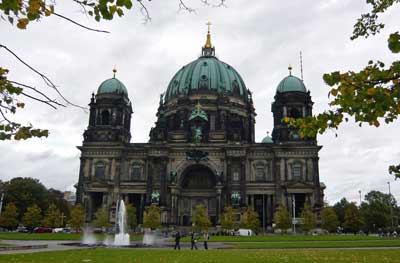
Berlin is more fun, more unpredictable, more unusual, and cheaper as well. Munich is more traditional, more German, very Bavarian, more posh, and has a marginally better climate. I highly recommend visiting both of them.
Where to go in Germany for 1 to 3 weeks
Berlin (3 nights or more)
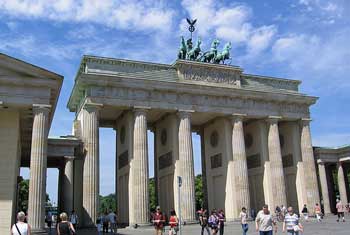
One complication, however, is that Berlin is very large and spread out. Similar to London and Paris, it has multiple central areas so you’ll need to use the extensive public transportation network, and stay at least 3 nights or more. Start with the famous free Berlin Walking Tour to get oriented with parts of East Berlin, and plan on at least a day exploring the former West Berlin as well.
Bonus: English is so widely spoken in Berlin that you can literally ask locals in it (as long as they are under 50 and/or involved in tourism), unlike other German cities where it’s still considered polite to start the conversation in German asking if they speak English.
Munich (2 or 3 nights minimum)

One word that most people use to describe Munich is “pleasant,” with a more relaxed and outdoorsy vibe. Of course there is also the famous Oktoberfest, running from mid September to early October, but before you plan for attending, realize that hotel rates literally triple for the festival. Still, if you can include Munich on your trip, you won’t regret it. Make sure you reserve spaces in the beer tents in advance because walk-up spots are often not available and you’ll have to stand in long queues.
Rothenburg ob der Tauber (24 hours)
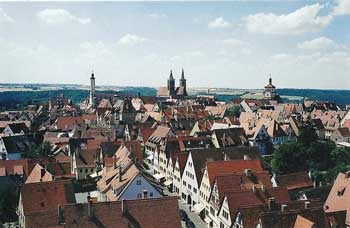
So just as with Venice, the trick is to spend a full 24 hours there, which will allow you most of the morning and all evening to practically have the place to yourself. You can get great views while exploring the city walls, but the highlight of a visit might be the Nightwatchman’s Tour at 8pm (except in winter). It’s a famous and entertaining walking tour explaining life in the city’s 14th Century heyday. The same Robert Plant-lookalike has been conducting the tour for several decades and it will be the highlight of your visit.
Neuschwanstein Castle/Füssen (24 hours)
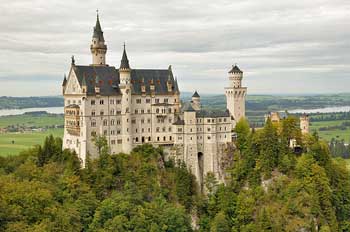
If you take a bus tour then you’ll be herded in and out with the huge crowds, so this is another that is worth staying overnight and visiting on your own terms. The town has other lovely castles plus historic churches and a generally nice center. Conveniently, Füssen is at the southern end of the Romantic Road, so it’s easy to visit by car, bus, or train between Rothenburg ob der Tauber and Munich.
Baden Baden/Black Forest (1 or 2 nights minimum)
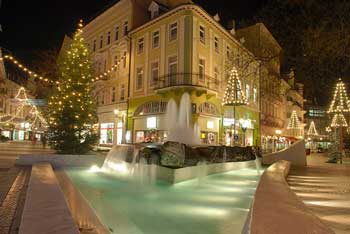
The area is also home to Baden Baden, which is a spa town famous for attracting wealthy to its thermal baths and casino. The thermal baths are open to the public, and popular with tourists of all income levels, so they are worth a look if this is your thing.
Cologne/Köln (1 or 2 nights minimum)
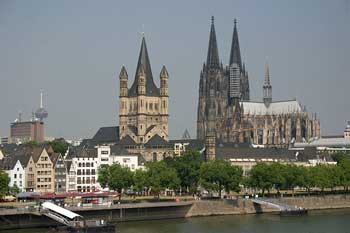
Beer drinkers appreciate Cologne for its somewhat unique version of lager known as Kölsch that is served in small glasses in all of the town’s many bars and pubs. There’s also one of Germany’s most impressive Christmas markets near the cathedral and train station, which is yet another reason for an overnight stop in December.
If you are going from, say, Paris to Amsterdam, your train will stop in Cologne along the way. It’s worth looking into the possibility of breaking your trip up and spending a few hours there because the cathedral and city center are right next to the train station.
Hamburg (2 nights minimum)
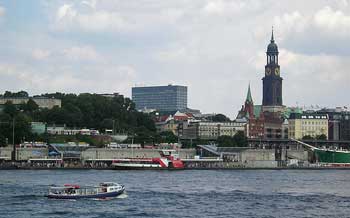
Hamburg also boasts its share of palaces, museums, and even the world’s largest model train railway display. But in spite of this, the city doesn’t seem to draw in as many tourists as one might think. Honestly, if you are going between Amsterdam and Berlin and/or Copenhagen, it’s a worthwhile stop. If you aren’t, then it’s probably better to concentrate in other regions.
Frankfurt (probably best to skip it)
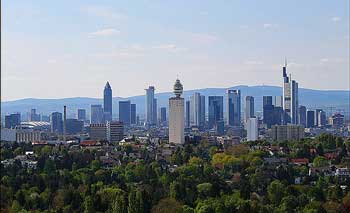
Actually, Frankfurt does have an impressive city center and some interesting architecture and a few good museums, so visiting isn’t a waste of time, it just might not be a good use of time. Germany’s rail system is so efficient that you can land at the airport here and be in one of the better tourist cities only a few hours later, without ever making camp in Frankfurt, so that’s usually the way to go.
<
Nearby places to visit if you have time
It’s true that some people will go to Germany specifically to taste what the country has to offer and then go home, but more people will include a few German stops while exploring this part of Europe. You can’t visit northern central Europe and not see Germany. Here are other places that are easy to reach from this country.
Prague (2 or 3 nights)
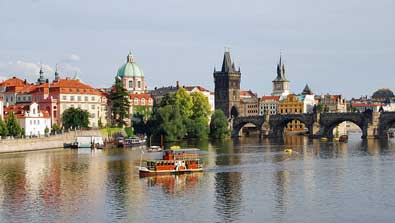
Thanks to a little scuffle called World War II, most of the big cities in this part of Europe were almost totally flattened by bombing in the early 1940s. The key parts of Berlin and Munich were rebuilt to look almost exactly like they were before and so they are both interesting to visit, but somehow much of Prague was spared the bombing so there are hundreds of amazing buildings that still date back hundreds of years. As if that weren’t enough, Prague is also cheaper than even Berlin and it has some of Europe’s most interesting nightlife as well.
>>>Prague travel guide and prices
Salzburg (2 or 3 nights)
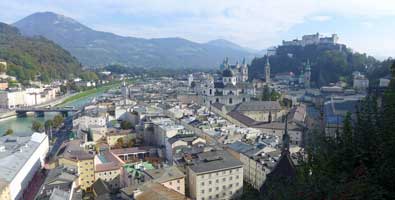
The two most famous things about Salzburg are it being the location of the Sound of Music film, and being Mozart’s birthplace. You’ll be reminded of both of those things frequently as you stroll around. There are Sound of Music bus tours that are really enjoyable even if you’ve never even heard of the movie, and super fun if you’ve seen it. And the Mozart attractions are also worth a look while you are in town. This is a good place to catch a classical concert, as they are going every day and evening for surprisingly affordable prices in smaller venues such as churches and such.
>>>Salzburg travel guide and prices
Amsterdam (2 to 4 nights)
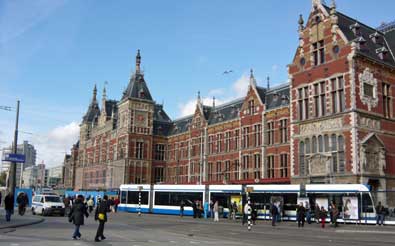
This is one of the world’s most beautiful cities and its attractions are all helpfully clustered in a fairly small and gorgeous area around the inner canal district. Hotels are fairly expensive, but it’s worth staying for at least two nights if you can fit it into your trip.
>>>Amsterdam travel guide and prices
i>Addtional photo credits: Berlin by Bookmouse on Flickr, Munich by .Strangely.Familiar. on Flickr, Rothenburg ob der Tauber by jivedanson on Flickr, Neuschwanstein by Nite Dan – Enjoypixel on Flickr, Baden-Baden by Diueine on Flickr, Cologne by Junnn on Flickr, Hamburg by Edgar Zuniga Jr on Flickr, Frankfurt by loop_oh on Flickr

Hi Roger! I will spend 7-8 days by November last week to December 1st week with my Mom (Senior age), but capable of walking as she is based on Paris.Coming from Paris,I’m planning to visit Strasbourg, Berlin, Rothenburg & Salzburg if possible. Then my last day should be back to Paris,for the next day flight back to my Home country. Hope you can help us. My request/ questions/concerns:
1.Can you suggest what we should visit first?
2. Is it doable?
3. What pass would be worth it?
I have read about Eurail pass but I’m not sure if it would be worth it? Or just the Germany Switzerland pass?
4. In case for the train pass,do I have to buy it in advanved? Do I have the actual itinerary plotted? And make advanced reservations for the trains?
We’re interested in cultural , historical at the same time sightseeing.
We’re .eeting a Friend in Berlin also.
Thank you so much.
Najhane,
I’ll try to answer your questions in order.
1. From Paris I’d go to Strasbourg then Rothenburg ob der Tauber then Salzburg then Berlin. From Berlin back to Paris the train takes about 8.5 hours so it might be better to fly. It’s not a very scenic route either.
2. It’s doable if you move quickly. Strasbourg is small enough to see in a day or two, and Rothenburg ob der Tauber (not to be confused with another city just called ‘Rothenburg’) is fun in about 24 hours. Salzburg is better in 3 days but 2 will work. And I’d save 3 days for Berlin because it’s huge.
3. Rail passes can be helpful for long trips where you really want to make plans as you go. But for a shorter trip with a tight schedule like this you’ll be better off buying individual tickets as far in advance as possible for the lowest fares and most departure choices.
4. Rail passes DO have to be bought before you arrive, but you’ll save more just buying cheap advance tickets. Let me know if you have any other questions. -Roger